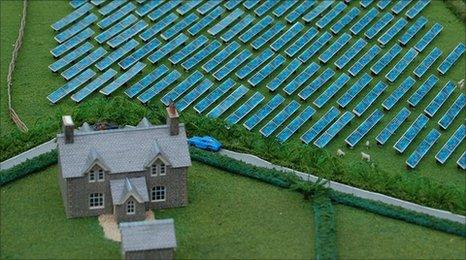Solar farms 'set to keep growing' despite subsidy cuts
- Published
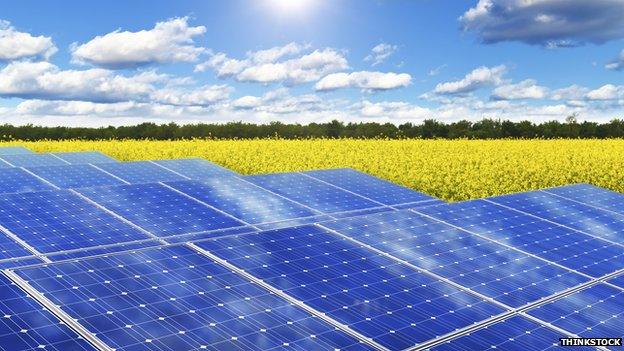
Many solar farms have faced public opposition for their use of greenfield sites
The rapid growth of solar farms across Wales will continue despite plans to reduce subsidies in the sector, says an industry expert.
More than 20 large fields of panels have opened since August 2011 with 40 more being built or planned.
Many schemes are opposed by local residents despite wider public support for a cheap form of green power.
John Constable of the Renewable Energy Foundation, external told BBC Wales solar farms already approved would not be held up.
He says solar farms are also getting bigger, according to his analysis for the Eye on Wales radio programme.
Greenfield sites
While the 21 Welsh solar farms already generating electricity cover 75 hectares (190 acres) between them, 25 sites with planning consent cover over 400 hectares (1,000 acres).
If a further 13 sites awaiting decisions are given the go-ahead they will take the total area covered to 800 hectares (2,000 acres).
The proposed Deeside Solar Park in Flintshire would be the biggest at 90 hectares (220 acres), the size of about 125 football pitches and bigger than all the existing schemes put together.
Two community councils oppose the development on a greenfield site, but Stephen Gibbins of Swansea-based developer Atem Solar said there would be benefits in addition to green energy.
"We propose to have sheep grazing on the site, so it is a diversification of existing farming use," he said, adding that wildflowers and bee hives would also be introduced.
Bird fears
In the Vale of Glamorgan, Griff Griffiths, who runs the Welsh Hawking Centre for birds of prey near Barry, says it may be forced to close if planners approve plans for a solar farm next door.
He says the council should promote rooftop panels on old industrial buildings instead.
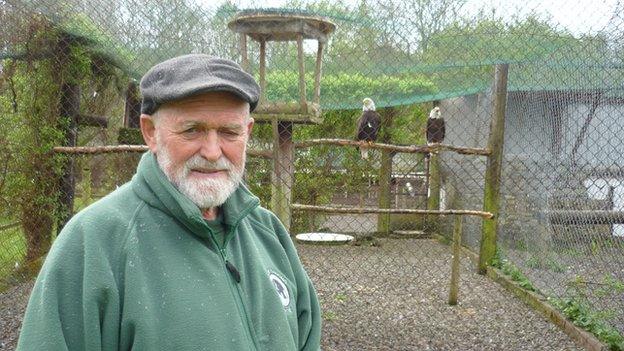
Griff Griffiths fears a solar park next door to his hawking centre will make it unsafe for his birds to fly
"I know I'm a 'nimby', but why [develop] on good agricultural land here when we only have to go to Barry Docks [to find] a brownfield site - big acres of it - with nothing on it?"
Rooftop schemes may become more attractive after the UK Department of Energy and Climate Change announced plans to cut the subsidy for large-scale, ground-based solar farms saying the sector was growing "much faster than expected".
However, Mr Constable believes predictions of the demise of large solar farms are premature.
"The subsidy bonanza is over - but it's not the end of the world for the solar industry," he said.
"These changes are not retrospective, so they won't affect existing solar plants.
"Secondly there is a very generous grace period - in effect anything with planning permission will be able to register under the current system.
"In any case, solar farms that are advanced in the planning system stand a decent chance of meeting the deadline."
Eye on Wales can be heard on BBC Radio Wales on Sunday, 18 May at 13:30 BST.
- Published13 May 2014
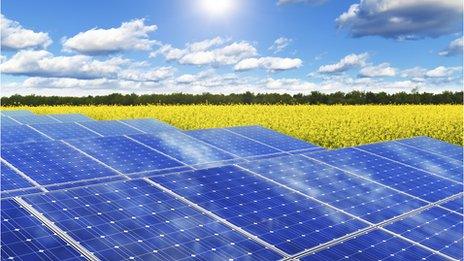
- Published19 March 2014
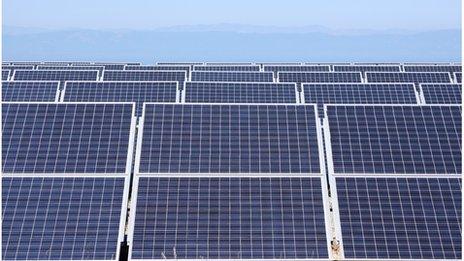
- Published10 October 2013
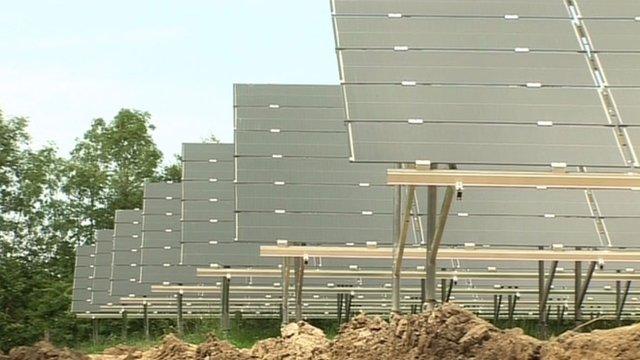
- Published9 January 2013
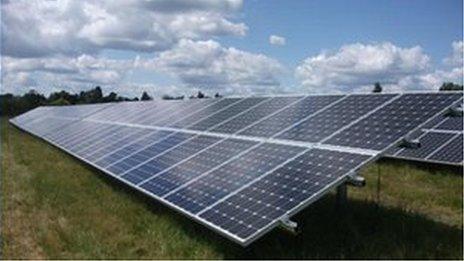
- Published8 July 2011
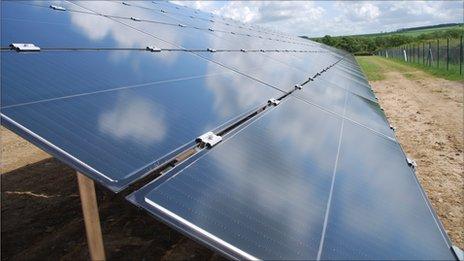
- Published18 October 2010
